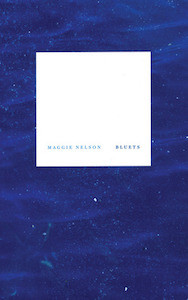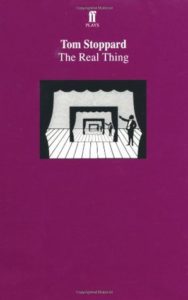
Catherine Lacey: Notes Toward a Class on Writing Love
The Author of The Answers Offers a Failed Syllabus for a Potentially Doomed Project
For years I have been trying (and failing) to develop a syllabus for a class on writing about love. As a subject for a writer it’s a minefield of sentimentality and cliche, so I always thought a class focused on the hazards and solutions to this challenge would be useful. The syllabus, however, remains unfinished primarily because I have not found enough books that unpack the feeling in just the way I would like.
Of course the poets have covered the territory with aplomb forever, but I suggest the subject could be dug into more deeply in prose. Many books cover heartbreak well and there are plenty on obsessive love and of course there are the many comedies that end in marriage, but I’m after another sort of story. No Disney endings. No platitudes. No montage sequences. The book I’m still looking for would encase the reader so completely in feeling that reading it could transform the reader into a lover or beloved, a book so utterly consuming and wrecking that it would make the quotidian seem suddenly foreign, just as love has the power to do.
Am I asking for too much? Perhaps I am. But is such a book out there? I hope someone will let me know.
For now, here are a few works that succeed in other ways.

Maggie Nelson, Bluets
Though nonfiction, I would give Bluets to any sort of writer because such a voice is indifferent to its categorization. Half about a love for the color blue and half addressed to an ex-lover by whom Nelson was bruised, its subject is far from heartbreak or redressal. You’ve likely been recommended this book a dozen times—it seems to be able to charm any reader—but if you haven’t read it yet, just do it. It’s a marvel.

Marcel Proust, Swann’s Way
There is so much clear, expansive thinking here about the way emotions layer and molt over time, but the chapter Swann In Love covers jealousy and desire particularly well.
On the mental fabric of love and jealousy:
For what we believe to be our love, or our jealousy, is not one single passion, continuous and indivisible. They are composed of an infinity of successive loves, of different jealousies, which are ephemeral but by their uninterrupted multitude give the impression of continuity, the illusion of unity.
On being held hostage by a mysterious longing for someone who ultimately does not deserve it:
Of all the modes by which love is brought into being, of all the agents which disseminate the holy evil, surely one of the most efficacious is this great gust of agitation which now and then sweeps over us. Then our fate is sealed, and the person whose company we enjoy at the time is the one we will love. It is not even necessary for us to have liked him better than anyone else up to then, or even as much. What is necessary is that our predilection for him should become exclusive. And that condition is fulfilled when—at a moment like this, when we do have him with us—the quest for the pleasure that his charm gave us is suddenly replaced in us by an anxious need whose object is this person himself, an absurd need which the laws of this world make it impossible to satisfy and difficult to cure—the senseless and painful need to possess him.

Tom Stoppard, The Real Thing
This play is at its heart one long question—how can a person confirm a love to be real? There’s a play within a play, lengthy intellectual meditations on abstract subjects, and all of Stoppard’s usual wit and banter. In a chess match of betrayal between two central couples, the play debates with itself about the nature of love, the hazards of monogamy and the unknowability of the heart. It somehow manages to be histrionic, serious, and funny all at once.
Catherine Lacey
Catherine Lacey is the author of The Answers and Nobody is Ever Missing.. She has won a Whiting Award, was a finalist for the NYPL's Young Lions Fiction Award, and named one of Granta Magazine's Best Young American Novelists. Her work has been translated into French, Italian, Spanish, Dutch & German. With Forsyth Harmon, she co-authored a nonfiction book, The Art of the Affair. Her first short story collection, Certain American States is forthcoming from Farrar Straus & Giroux. Based in Chicago, she is the 2017-2018 Grisham Writer in Residence at the University of Mississippi.



















